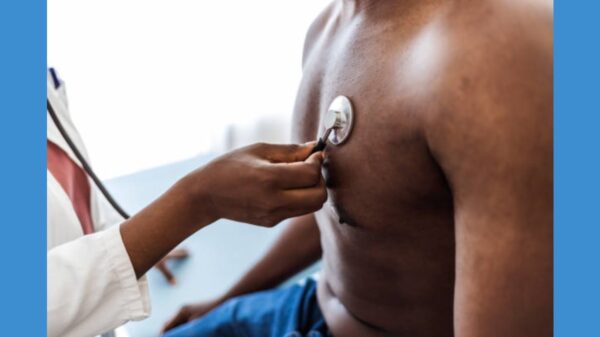From Staff Reports
From – https://theinnercitynews.com/
Reprinted – by Texas Metro News
Congressman Mike Johnson, the new Speaker of the House has an opportunity to work in a bipartisan manner with Minority Leader, Hakeem Jeffries and follow the lead of a group of six U.S. Senators John Thune (R-S.D.), Debbie Stabenow (D-Mich.), Shelley Moore Capito (R-W.Va.), Tammy Baldwin (D-Wis.), Jerry Moran (R-Kan.), and Ben Cardin (D-Md.), who formed a bi-partisan working group to find solutions that would provide stability and appropriate transparency to ensure the 340B program can continue to achieve its original intent of supporting entities serving eligible patients. Recently, the Senate HELP Committee Chairman Bernie Sanders (D-Vt.) released a report in which the senator called into question many of the practices we see today in the non-profit hospital industry. Referring to their tax-exempt status, the report observes that non-profit hospitals could play a significant role in delivering necessary care to Americans while also satisfying their charity care obligations. Instead, too often we learn that some of these hospitals are not directing these discounts to the patients they serve.
It takes decades to get anything big done in Washington, DC. That’s not something politicians there like to admit, but it’s true–nowhere more than in the complicated field of healthcare policy. When I first became a congressman in the early 1980s, I worked with Ben Chavis on Health Care issues for example, we didn’t have a prescription drug benefit for seniors. When I left the House a decade ago, seniors had access to lifesaving drugs, but the government lacked the power to negotiate prices with manufacturers. Last week the Biden Administration announced the first steps to setting up negotiations in Medicare made possible by the Inflation Reduction Act. There is more that can be done, and Congress has an obligation to do more when it comes to making sure everyone has access to prescription medicines at affordable prices. Back in the early 1990s (with my support) Congress passed a law known as “340B” to do just that. Drug manufacturers are required by law to make medicines available to charity hospitals and pharmacies at a steep discount, with the idea that these healthcare centers would in turn make the medicines available to local patients for free or nearly for free (regardless of ability to pay).
Believe it or not, Congress is still trying to make the 340B program work three decades later. Hospitals today are rarely stand-alone concerns. They are usually part of broad, corporately owned networks consisting of healthcare facilities in neighborhoods ranging from poor to rich, and from urban to rural. If one hospital qualifies to get discounted 340B drugs, this shouldn’t matter–the local patients are the intended beneficiaries. But that’s not how hospital networks are using 340B. As seen recently in Richmond VA, too often hospital networks are happy to use their branches in poor areas to get 340B drugs into the pipeline, but then re-route these medicines throughout the hospital network to be sold at full price to patients of all income levels. As someone who voted for the original 340B law, I can assure you this was not Congressional intent. We wanted the drug companies to get affordable medicines to the patients who need them–we never intended for hospital networks to profit off this using clever redirection tactics.
Maybe that’s why a bipartisan group of U.S. senators recently requested information from stakeholders about how the 340B program is working. I was pleased to see so many traditional civil rights, and other healthcare leaders weigh in on these and make health care disparities a key civil rights issue. We applaud leaders such as Rev. Al Sharpton, Delegate Kathy Tran, Virginia House of Delegates, Linda Goler Blount, Black Women’s Health Imperative, Kevin Kimble, Southern Christian Leadership Global Policy Initiative, Bishop Dean Nelson, Frederick Douglass Foundation, to name a few for their advocacy efforts on this issue. We want to improve the 340B program Democrats and Republicans agree that the program should work the way Congress intended it to. The Biden Administration should ensure that hospitals and other entities are using the savings they obtain from the 340B program to help the patients who are supposed to be helped. Fixing 340B is the next step in ensuring health equity regarding prescription medicines.
Mr. Ed Towns, a civil rights activist, and a former Member of Congress from New York who served on the Congressional Black Caucus.
Dr. Benjamin F. Chavis, Jr. is presently the CEO & President of the National Newspaper Publishers Association.
NNPA NEWSWIRE — Drug manufacturers are required by law to make medicines available to charity hospitals and pharmacies at a steep discount, with the idea that these healthcare centers would in turn make the medicines available to local patients for free or nearly for free (regardless of ability to pay).

You must be logged in to post a comment Login